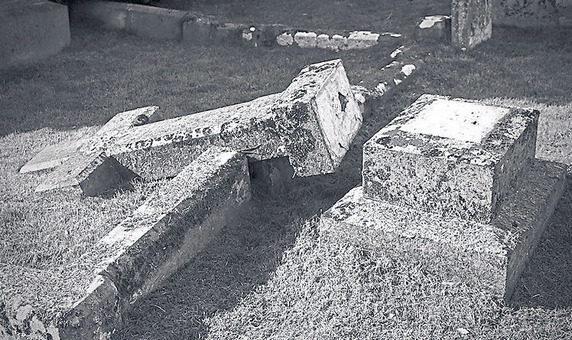Closure on a closure?
When a church shuts, what are we to think?

Some months ago, the church I served as pastor for over 15 years worshipped together for the last time.
Planted 25 years previously, she had her ups and downs: a constant trickle of conversions, some of whom fell away, others remaining firmly rooted. We worked hard at local evangelism and when the church closed, ironically we had more unconverted contacts (adult and children) than ever. We sent couples and singles into gospel work on a regular basis, yet the church was always tiny, and in a suburban area, our annual inflow/outflow was usually 15-20%.
The final year saw an unprecedented out-flow. I watched helplessly and unhappily as the church slid below viability. All too soon, the point came when I knew my task was to manage a closure as best I could. Thankfully her death was without the sting of sin and bitterness – but a church’s death just can’t be an administrative issue: it’s only ever a tragedy.
Why did the church die?
Ultimately, God’s decrees cover all the events of human history: but to account for all bad news with a hyper-Calvinist shrug is too easy, and keeps us from a right perspective and from gaining wisdom. So why did she die? Under God, the prime reason was the enemy. Satan hates churches more than anything else on earth. We must never discount or downplay this spiritual element – hidden, but deeply influential. His attack on the church I served was successful and the murderer gained a victory.
But the destroyer won’t be satisfied with that. Indeed, as society departs from the gospel, it’s likely that the enemy’s capacity to damage and defeat churches will increase – so I think we should reflect on a closure.
What was Satan able to exploit?
Here are some things that come to mind.
• My personal folly and other limitations. I made unwise decisions, had insufficient insight, and finally lacked what was needed to meet the challenges of the circumstances. My sins damaged Christ’s body and offended his people.
I’m forgiven, but I must yet give account (Hebrews 13.17). I don’t think I was a bad pastor, just an average one, but the shortcomings of any leader expose the church to attack: they are her chief vulnerability.
• The weaknesses of God’s people. Especially I mean the damage caused by Christians walking away from the church. I can’t be sure, but I think our terminal decline was triggered by one couple’s departure which caused a disproportionate demoralisation, intensified when others departed for more ‘circumstantial’ reasons.
• The long shadow cast by large churches. Many more Christians (especially the young adults and families whose presence or absence are so influential) left our suburb to worship at other churches. If Christians today truly believed that ‘the local church is the hope of the world’, that delocalisation really wouldn’t happen. While we had good relations with surrounding churches of all sizes, when we were stricken on the Jericho Road, ultimately no one crossed over to help.
How does a church die?
The closure of the church was a victory for Satan. In what ways?
• Life support withdrawn. Most members seem to be transferring to other churches, but ten per cent have stopped attending, and ten per cent have not settled. That’s not an acceptable casualty rate!
But worse, I’m not aware that any of our wider group of contacts have continued under the gospel: a 100% casualty rate. No life support inevitably means death.
• Mission aborted. No more regular evangelism. No more outreach to children, young parents, old people’s homes. One less worshipping community where the gospel was proclaimed, for people to resort to when the Spirit convicts them of sin, or when they become aware of need.
• The defeat makes Jesus look like a loser. Given that a local church is ‘the pillar and foundation of the truth’ (1Timothy 3.15), it’s not surprising if local people infer that the gospel is not a trustworthy deal. A church closing is a bad witness.
• No more wider contribution. Any church serves the kingdom as Christ’s riches overflow through her very presence, her support to parachurch organisations and missionaries, and her officers. That’s all over now.
So, what do we do with death?
When a church dies it is difficult to know how to react. What should we do?
• Lament. Our understandable preference for celebration is unbalanced if we don’t know what to do in defeat, if we ignore or even justify our losses. We’re awkward with bad news; we airbrush it from our press releases. But if Israel could lament the loss of even a sinful tribe (Judges 21.2-3); if devout men not only buried Stephen, but then made great lamentation over him (Acts 8.2); if Jesus wept at the graveside; then lament is right, and the body of Christ should not be content for a sister church to be cast into an unmarked grave.
• Learn. Wise witnesses of a tragedy would do well to learn from it. Examining cause and effect, facing the limitations of leaders and Christians, addressing the weaknesses inherent in our contemporary church cultures, readying ourselves for whatever sacrifices may be required to stand against the schemes of the devil.
• Love. Older Christians frequently bemoan what they see as a lack of commitment, yet the need is for something better and more searching. Commitment flows readily from love: as Christ loved his church, so should we. Not just the persecuted church, but the needy church: and my church, the church where he placed me. It’s not a supermarket which we abandon when deals are better elsewhere – my church is the body of Christ whom I love.
• Look out. A church is secure in Christ, but is never safe in this world. In many ways, every church should be vulnerable: if it’s not struggling (whatever its size), is it being faithful? But churches should not just look out for themselves, local churches (and that means their leaders) should sacri-ficially care for their sisters just as individual believers should look out for their brothers.
I recently remarked that if our church could be defeated and close, it could happen to any church. As an evil and chill wind gains power from a resurgent ‘prince of the power of the air’, how must we ‘strengthen the things that remain’?


